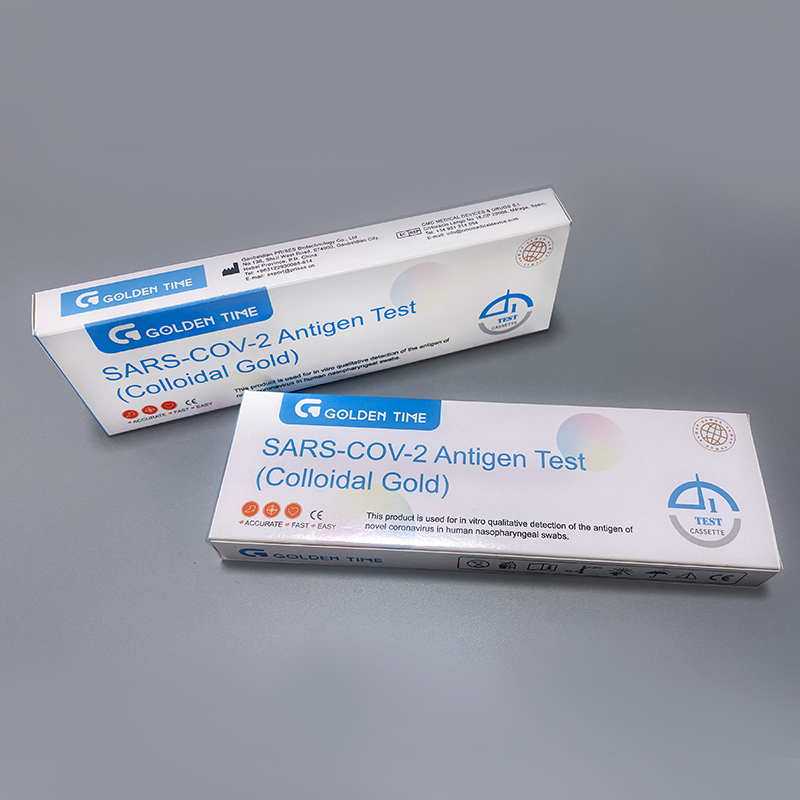12 月 . 04, 2024 16:34 Back to list
Rapid Testing Kit for Syphilis Detection and Diagnosis
Overview of Syphilis Rapid Test Kits A Critical Tool in STD Detection
Syphilis, a sexually transmitted disease (STD) caused by the bacterium Treponema pallidum, has seen a resurgence in recent years, raising significant public health concerns. Early diagnosis is crucial for effective management, and this is where syphilis rapid test kits come into play. These kits have emerged as a vital tool for both healthcare providers and individuals seeking timely diagnosis and treatment.
Understanding Syphilis and Its Stages
Syphilis is often referred to as “the great imitator” because its symptoms can mimic those of other diseases. It progresses in stages primary, secondary, latent, and tertiary. The primary stage is marked by the appearance of a painless sore (chancre) at the infection site, while secondary syphilis may present with rashes, fever, and swollen lymph nodes. If untreated, syphilis can progress to latent and tertiary stages, leading to severe health complications, including cardiovascular and neurological disorders. Thus, prompt detection is essential to mitigate these risks.
What are Syphilis Rapid Test Kits?
Syphilis rapid test kits are diagnostic tools designed to detect syphilis antibodies or the presence of Treponema pallidum in a patient’s blood or other bodily fluids. These kits typically involve a simple procedure where a small sample of blood is collected, often through a finger prick. The sample is then applied to a test strip that contains reagents specific to syphilis antibodies. Within a short time, usually 15-30 minutes, the results are displayed, indicating either a positive or negative reaction.
Advantages of Rapid Test Kits
1. Speed and Convenience One of the primary advantages of syphilis rapid test kits is their ability to deliver results in a timely manner. Traditional laboratory tests can take days or even weeks, whereas rapid tests provide immediate feedback, enabling quicker clinical decisions and reducing the stress and uncertainty for patients.
2. Accessibility These kits are particularly useful in low-resource settings or in environments where laboratory facilities may not be available. They can be easily used by healthcare workers in clinics, outreach programs, or even at home, thus increasing testing accessibility for those who might otherwise forgo testing.
syphilis rapid test kit

3. Ease of Use The straightforward nature of rapid test kits means that they do not require specialized medical training to administer. This has significant implications for public health initiatives, allowing community health workers to conduct screenings and making it easier for individuals to check their status privately.
4. Reduced Stigma By facilitating self-testing or easy access to testing in community settings, rapid test kits can help alleviate the stigma associated with STD testing, encouraging more individuals to seek out care.
Challenges and Limitations
While syphilis rapid test kits offer numerous benefits, they are not without challenges. False-positive or false-negative results can occur, highlighting the importance of follow-up confirmatory testing for definitive diagnosis. Furthermore, these tests typically do not differentiate between active and previous infections; therefore, additional clinical evaluation is necessary for appropriate management.
The Role of Rapid Testing in Public Health
Incorporating syphilis rapid test kits into broader public health strategies can significantly enhance efforts to control syphilis and other STDs. Testing initiatives can be paired with educational programs to raise awareness about syphilis, reduce transmission rates, and encourage safe sexual practices. Mobile testing units, community health events, and partnerships with local organizations can further expand outreach and engagement.
Conclusion
Syphilis rapid test kits represent a significant advancement in the fight against this resurgent STD. Their speed, accessibility, and ease of use make them invaluable tools for early detection and intervention. However, to maximize their efficacy, it is essential to implement these tests as part of comprehensive sexual health services, including education, counseling, and follow-up care. As we continue to address the public health challenges posed by syphilis and other STDs, investing in rapid testing technology will be critical in safeguarding individual health and well-being.
-
Early Pregnancy Test Kits Accurate & Fast Results Bulk Order Now
NewsMay.30,2025
-
Buy OPK Tests for Pregnancy Detection Bulk Supplier Discounts
NewsMay.30,2025
-
Buy OPK Tests for Pregnancy Detection Bulk Supplier Discounts
NewsMay.30,2025
-
Best At Home H Pylori Test Kits Accurate, Fast & FDA-Certified
NewsMay.29,2025
-
Accurate Syphilis Test Kits Trusted Suppliers & Manufacturers
NewsMay.29,2025
-
Wholesale Stool Occult Blood Test Kits Bulk Supplier Pricing
NewsMay.29,2025

